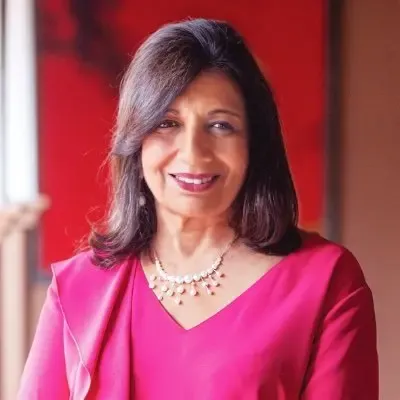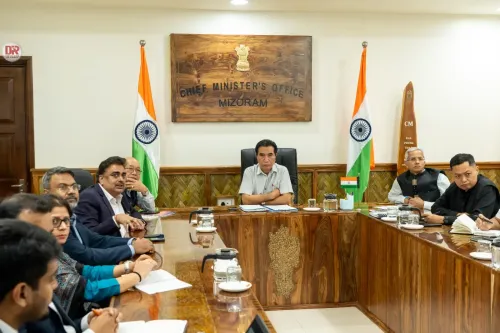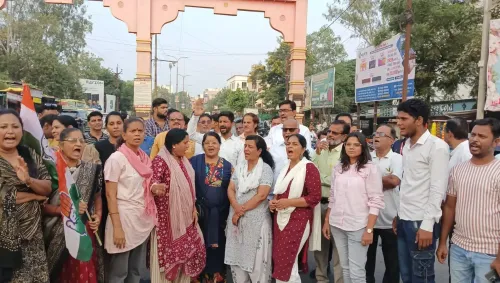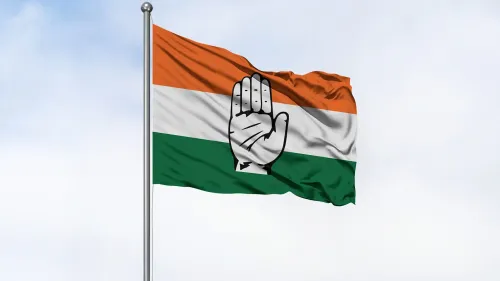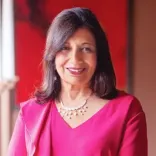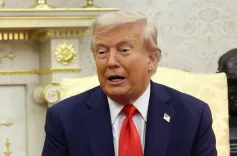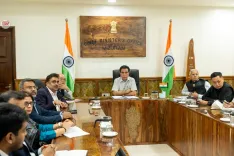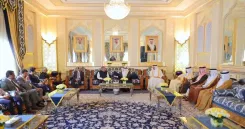Did PM Modi Critique Congress at NDTV World Summit?
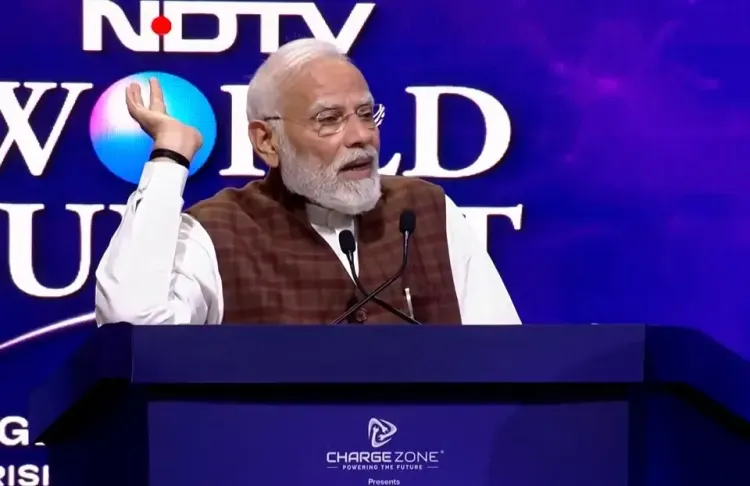
Synopsis
Key Takeaways
- PM Modi's address critiqued Congress's governance.
- India has transformed into a top-five global economy.
- Financial inclusion is a key achievement of Modi's government.
- Reforms have focused on democratizing policies.
- India is increasingly appealing to global investors.
New Delhi, Oct 17 (NationPress) During the NDTV World Summit on Friday evening, Prime Minister Narendra Modi reflected on the policy environment prior to 2014, presenting a stark assessment of India's struggles under Congress rule. He accused the party of enabling policy paralysis, widespread corruption, and economic mismanagement that left the country exposed.
Speaking on the theme “Unstoppable India” at the Bharat Mandapam in New Delhi, PM Modi addressed a gathering of international leaders, including Sri Lankan Prime Minister Harini Amarasuriya, former UK Prime Minister Rishi Sunak, and former Australian Prime Minister Tony Abbott, contextualizing India's progress against the failures of the Congress era.
He contrasted his administration's inclusive reforms with the exclusionary legacy of Congress. “They alienated people from banks; the impoverished were intimidated to even enter them. When we assumed office, half the populace was unbanked,” he stated.
His government established over 50 crore Jan Dhan accounts, revolutionizing finance and positioning India as a leader in digital transactions.
“In contrast to Congress, we endeavored to democratize policies, not bureaucratize them. This is the essence of Unstoppable Bharat,” he asserted, pointing out banking reforms that addressed the Non-Performing Assets (NPA) crisis left behind by Congress.
PM Modi launched a fierce critique of the Congress party's governance, accusing it of creating a “mountain of NPAs”, distancing citizens from banking, and proposing to close petrol stations for 12 hours daily to avoid subsidy burdens.
“Before 2014, discussions revolved around bracing for global challenges, women's safety issues, and sleeper cells of terrorism. Many doubted India's resurgence,” he remarked.
However, India has since evolved from being among the “fragile five” to becoming a top-five global economy.
“Inflation is under 2 percent, and our average growth over the past three years has been 7.8 percent - an extraordinary feat,” PM Modi declared, referencing recent upward revisions in India's growth forecasts by the IMF (International Monetary Fund).
The Prime Minister also criticized Congress's subsidy policies, mentioning their plan to close petrol stations from 8 PM to 8 AM to manage subsidies.
“Now, stations operate around the clock, ensuring accessibility,” he emphasized, reiterating his government's dedication to public welfare.
PM Modi highlighted India's attractiveness to global investors, noting Google's recent significant investment and increasing interest in the energy and semiconductor industries.
“The world recognizes opportunity in India and regards us as a dependable ally,” he added. PM Modi characterized India's journey as transforming “every risk into reform, reform into resilience, and resilience into resolution.”
Disregarding Congress's earlier liberalization as “reforms out of necessity,” he framed his policies as proactive and focused on the populace.
As the summit, themed “Edge of the Unknown: Risk, Resolve, Renewal,” fostered global dialogue, PM Modi’s speech reaffirmed India's rise, positioning his government’s reforms as a significant departure from Congress’s errors, paving the way for a stronger, more inclusive nation.

